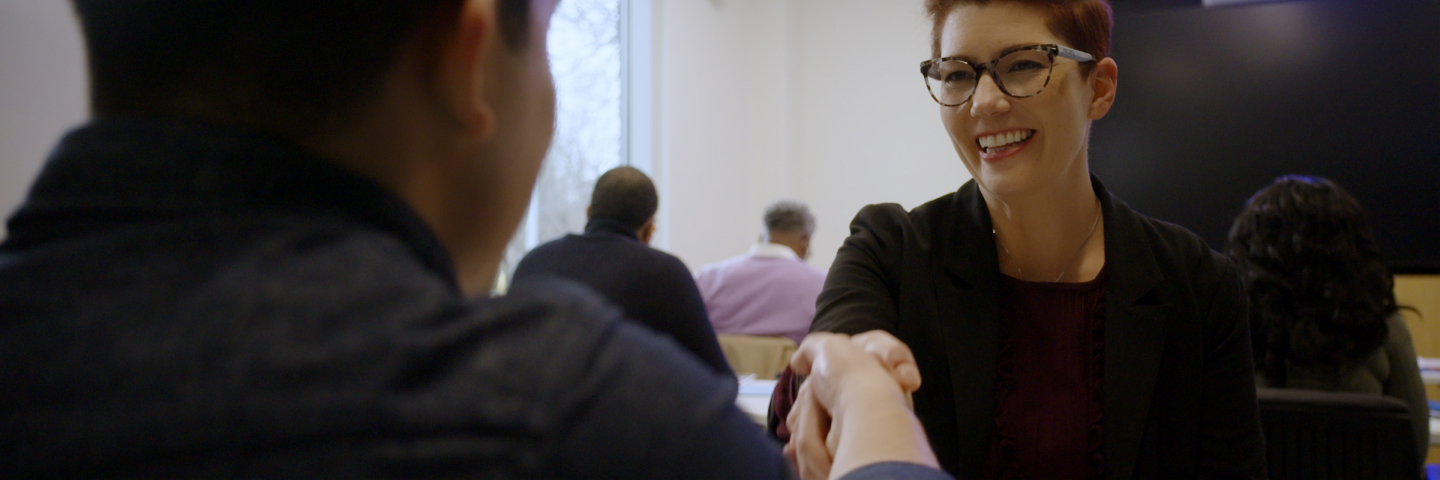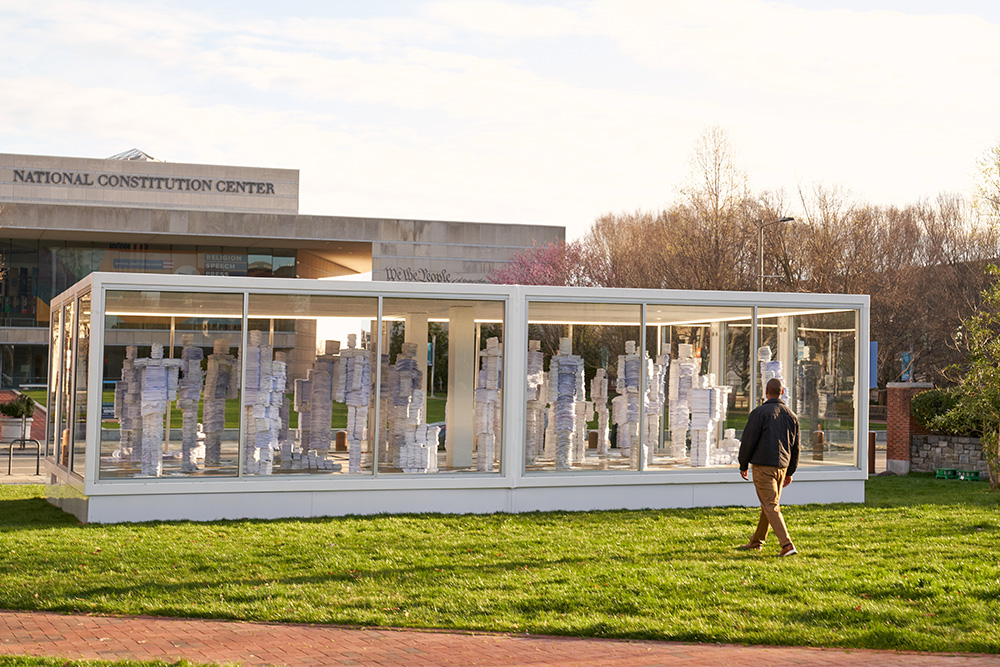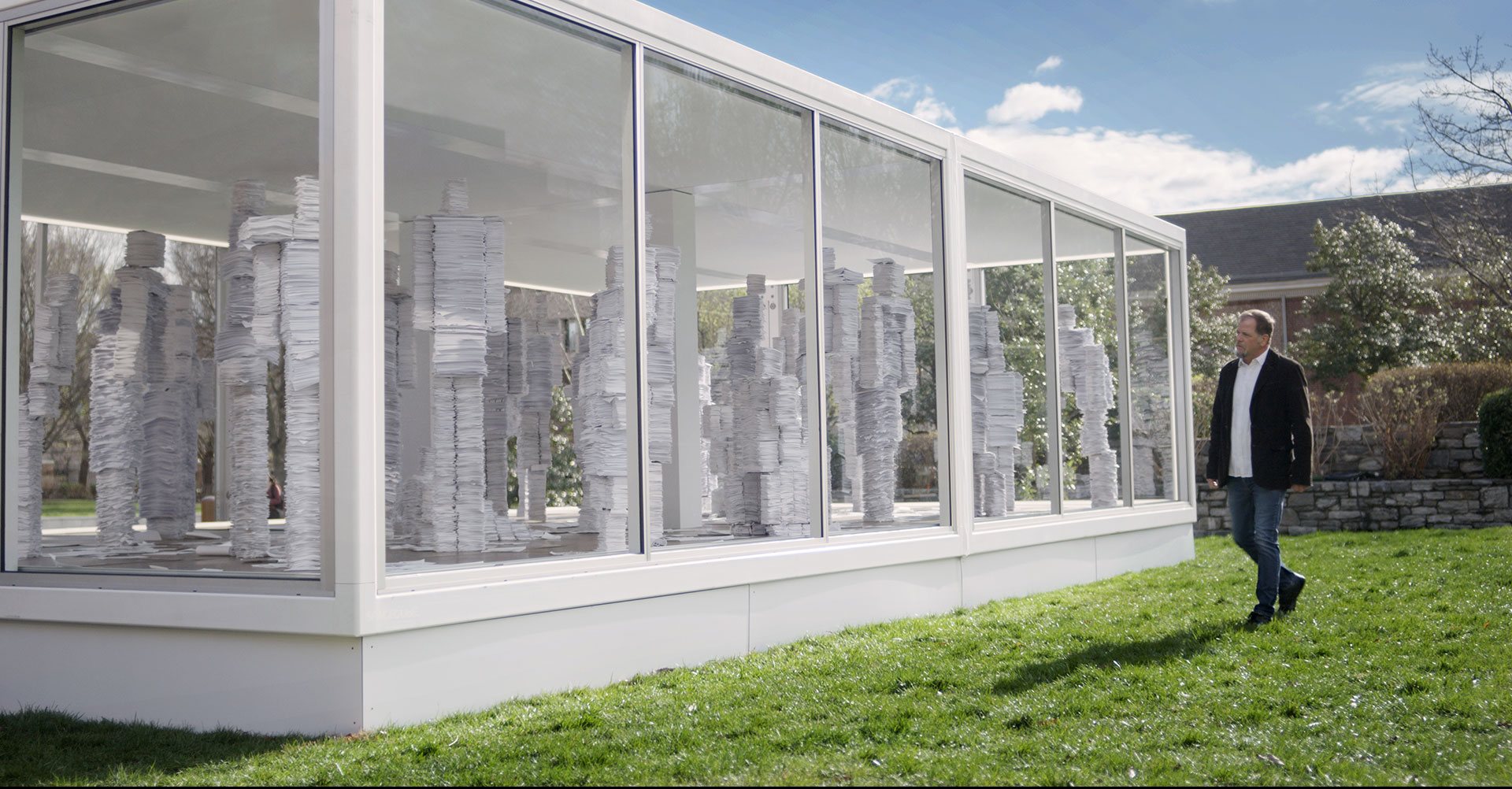BRG – JPMC – Waiting Workforce – Transcript
[emotional music]
Woman With Long Braided Hair and Brown Eyes:
I was a 19-year-old kid, I had never been in trouble before.
Woman With Long Brown Hair and Green Eyes:
18 years old, just smoking weed in the dorms.
Man With Slicked-Back Dark Hair and Hazel Eyes:
Now I had a permanent record, and I had to deal with that.
Man With Short Black Hair and Brown Eyes:
I couldn’t vote, I couldn’t be a taxi cab driver…
Woman With Long Braided Hair and Brown Eyes:
You don’t get housing opportunities…
Bald Man With A Thick Salt-and-Pepper Beard:
Me trying to get jobs...
Side note:
He heaves a heavy sigh.
Bald Man With A Thick Salt-and-Pepper Beard:
...It followed me.
Man With Slicked-Back Dark Hair and Hazel Eyes:
I began to go through this expungement process, every step costs money, every step takes time.
Woman With Straight Blonde Hair and Brown Eyes:
It can cost upwards of $10,000 per case.
Man With Short Black Hair and Brown Eyes:
Do I have the means to do it? Do I need an attorney?
Man With Blue Eyes and A Goatee:
And all you are is paperwork.
Man With Slicked-Back Dark Hair and Hazel Eyes:
When I actually walked up to this piece and I see all these people, faceless and nameless… I look at that sculpture and I say “that is me.” I feel like one of these people who’s constantly waiting.
Man With Short Black Hair and Brown Eyes:
I’m like, those are people burdened by mountains of documents, mountains of paper.
Woman With Long Brown Hair and Green Eyes:
For me, Clean Slate legislation would mean a new lease on life…
Woman With Straight Blonde Hair and Brown Eyes:
Educational opportunities, employment opportunities, housing opportunities… It would be life changing.
Man With Slicked-Back Dark Hair and Hazel Eyes:
It touches you very deeply to understand that there is maybe a light at the end of the tunnel.
Woman With Long Braided Hair and Brown Eyes:
Yeah, my second chance, it’s definitely coming.
Bald Man With A Thick Salt-and-Pepper Beard:
Might have done some wrong. Doesn’t mean that you can’t change and do some right.
END










